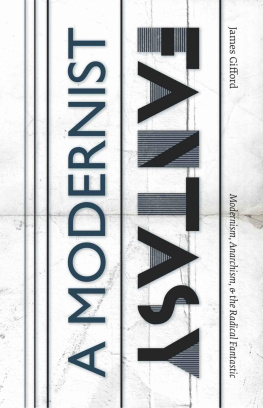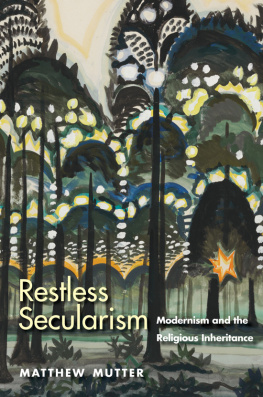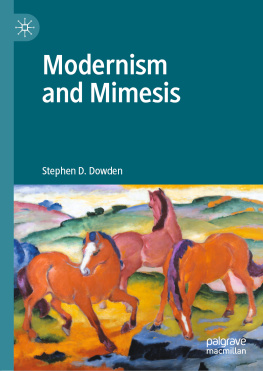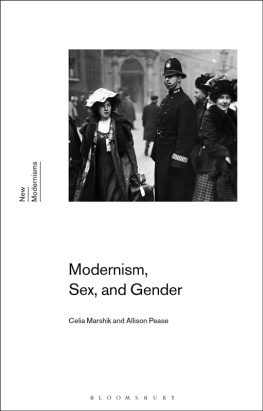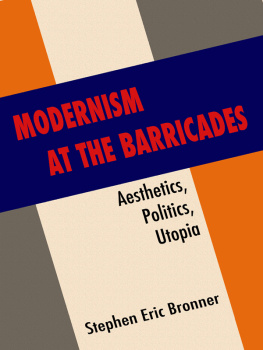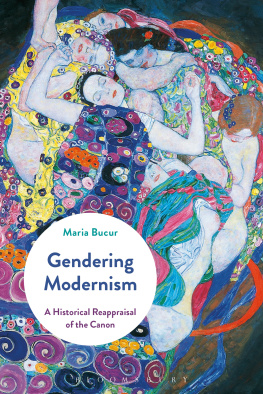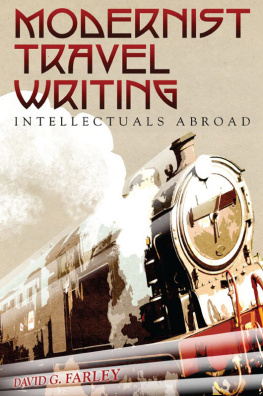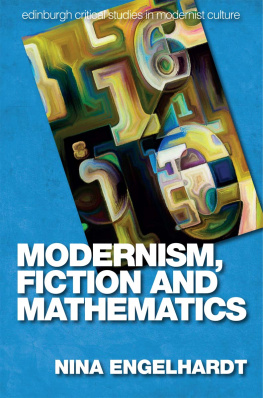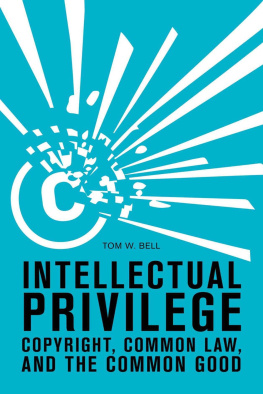Modernism and Copyright
MODERNIST LITERATURE AND CULTURE
Kevin J. H. Dettmar and Mark Wollaeger, Series Editors
Consuming Traditions
Elizabeth Outka
Machine-Age Comedy
Michael North
The Art of Scandal
Sean Latham
The Hypothetical Mandarin
Eric Hayot
Nations of Nothing but Poetry
Matthew Hart
Modernism and Copyright
Edited by Paul K. Saint-Amour
Accented America
Joshua L. Miller
Criminal Ingenuity
Ellen Levy
Modernism and Copyright
Edited by
Paul K. Saint-Amour


Oxford University Press, Inc., publishes works that further
Oxford Universitys objective of excellence
in research, scholarship, and education.
Oxford New York
Auckland Cape Town Dar es Salaam Hong Kong Karachi
Kuala Lumpur Madrid Melbourne Mexico City Nairobi
New Delhi Shanghai Taipei Toronto
With offices in
Argentina Austria Brazil Chile Czech Republic France Greece
Guatemala Hungary Italy Japan Poland Portugal Singapore
South Korea Switzerland Thailand Turkey Ukraine Vietnam
Copyright 2011 by Oxford University Press, Inc.
Published by Oxford University Press, Inc.
198 Madison Avenue, New York, New York 10016
www.oup.com
Oxford is a registered trademark of Oxford University Press.
All rights reserved. No part of this publication may be reproduced,
stored in a retrieval system, or transmitted, in any form or by any means,
electronic, mechanical, photocopying, recording, or otherwise,
without the prior permission of Oxford University Press.
Library of Congress Cataloging-in-Publication Data
Modernism & copyright / edited by Paul K. Saint-Amour.
p. cm. (Modernist literature & culture)
Includes bibliographical references and index.
ISBN 978-0-19-973153-4 (cloth : alk. paper) ISBN 978-0-19-973154-1 (pbk. : alk. paper) 1. Copyright. 2. CopyrightGreat Britain. 3. Modernism (Literature) 4. Law and literature. I. Saint-Amour, Paul K. II. Title: Modernism and copyright.
K1420.5.M63 2011
346.04'82dc22 2010009509
1 3 5 7 9 8 6 4 2
Printed in the United States of America
on acid-free paper
For David Foster Wallace
Contents
Paul K. Saint-Amour
Robert Spoo
Celia Marshik
Mark Osteen
Joanna Demers
Peter Decherney
W. Ron Gard and Elizabeth Townsend Gard
Catherine L. Fisk
Oliver Gerland
Mark A. Fowler
10. Privacy and the Misuse of Copyright:
The Case of Shloss v. the Estate of James Joyce
Carol Loeb Shloss
Stanford G. Gann Jr.
Mary de Rachewiltz
Joseph R. Slaughter
Eric Hayot and Edward Wesp
Series Editors Foreword
Choosing the first essay collection to appear in the Modernist Literature and Culture series felt like a big decision: a big decision that, ultimately, was no decision at all. Scholarly presses are rightly wary of taking a risk on collections, which often dont sell as well as monographs; in kicking off the series, Mark and I had an agreement with our editor, Shannon McLachlan, that wed establish MLC exclusively with monographs. But we also knew that there would be room, when the time was right, for just the right collection.
And then at just the right moment, Paul Saint-Amour brought it to us: Modernism and Copyright. A collection by many hands, in that quaint old publishing phrase, can prove its worth by doing one of two things. The first is to bring together ten or twelve luminaries to polish up a topic that has started to lose its luster. A mixture of established and younger scholars, for instance, on the current status of the death of the Author (still dead?), or New Directions in [Your Problematic Here]. Such a volume serves to establish the state-of-the-discipline, or state-of-the-discourse: it might venture one or two forward-looking pieces, but its primary project is consolidation, as it attempts to master all it surveys.
Modernism and Copyright is not in the business of rehabbing well-worn ground. Rather, it earns its spot on the Modernist Literature & Culture list by giving shape to a field that has, to date, remained largely inchoate: the field so simply denominated in its title. This is the second great service that an edited volume can perform for the profession or the discipline: to focus, to galvanize, a scholarly conversation; to draw together the various threads in a conversation hitherto only dimly recognized as a conversation. In short, the most powerful collections of this kind help to establish a field of inquiry, and to provide it with a theoretical and methodological basis, where before one heard only individual voices crying in the scholarly wilderness. Before the intervention of this kind of collection, we know theres something happening but we dont know what it is: the volume comes along and gives it a name, and an intellectual center.
Writing for the first type of collection is a chore, something of a scholarly obligation (unless one happens to be the new kid in the volume); when writing for the second type, one has the sense of redrawing the boundaries of disciplinary inquiry, being part of something big.
Were very pleased with the wide range of essays in what might, to the uninitiated, sound like a somewhat narrow project; Paul Saint-Amour must be commended not just for this range, which he had the foresight to seek out, but for the very clear organization of paired essays on topics ranging from Portraits of the Modernist as Copywright to The Fall and Rise of Remix Culture to Modernism after Modernism after Modernism. If this is the ideal first collection for the MLC series, Paul is ideally positioned at the center of this intellectual welter. His first book, The Copywrights: Intellectual Property and the Literary Imagination effectively put issues of intellectual property on the radar of modernist studies, and his years of working on these questions, in both very theoretical and highly practical terms, pay a great dividend here. Modernism and the Lives of Copyright, Pauls introduction to the collection, goes far beyond the typical remit of a collection introduction, adumbrating at least two important new matrices for understanding the volumes titular interaction: his novel application of Foucaultian biopolitics to questions of copyright maximalism, on the one hand, and his deft deployment of counterfactual narratives, on the other. At the other end of the volume, Modernism and Copyright adapts an eminently practical FAQ for modernist scholars on questions of copyright, the public domain, fair use, and permissions, initially prepared by a group of scholars chaired by Saint-Amour at the behest of the International James Joyce Foundation.
In between these rich bookends, a wealth of information and provocation on modernisms vexed relationship with evolving international copyright systems and with adjacent regimes of privacy, publicity, and attribution: laws that modernist works provoked and contested, decried and celebrated.
We feel confident now in saying that modernisms interpellation within questions of intellectual propertyand the inseparability of copyright law itself from the intellectual and juridical structures of modernismhas achieved the status of an important subfield within modernist studies. Modernism and Copyright
Next page

